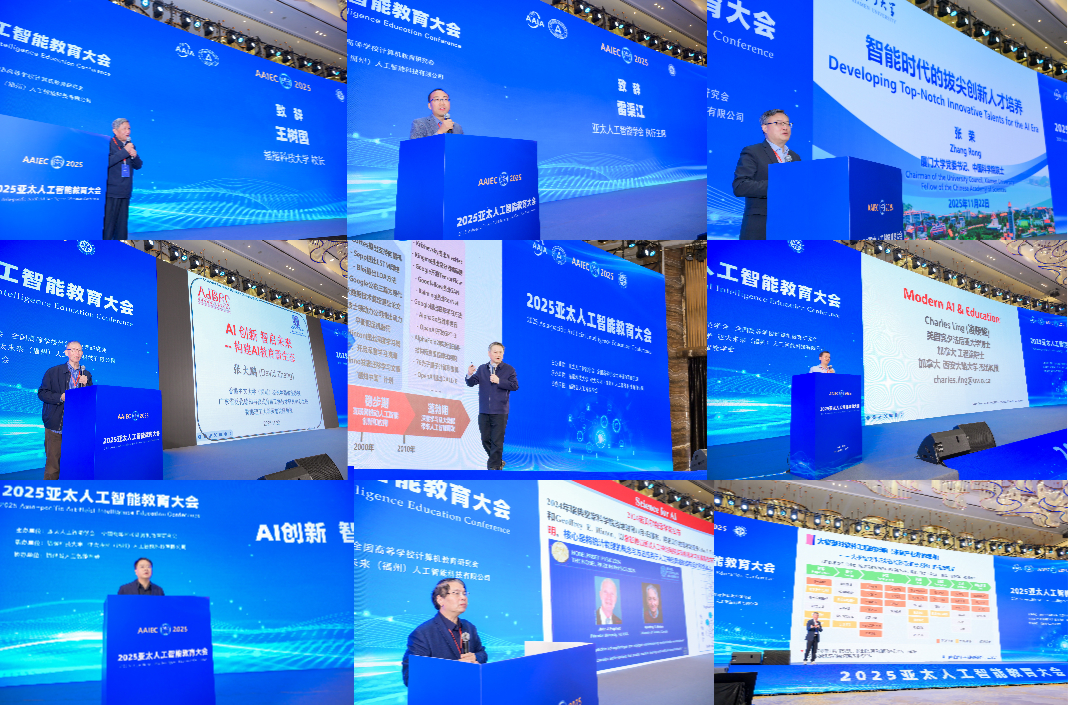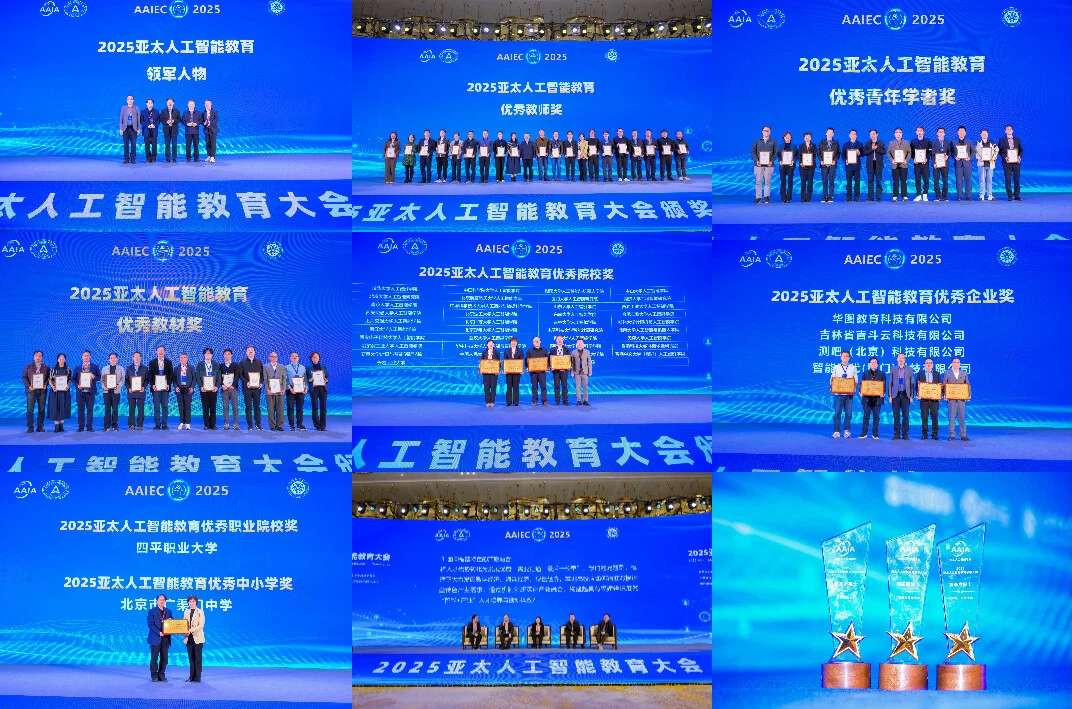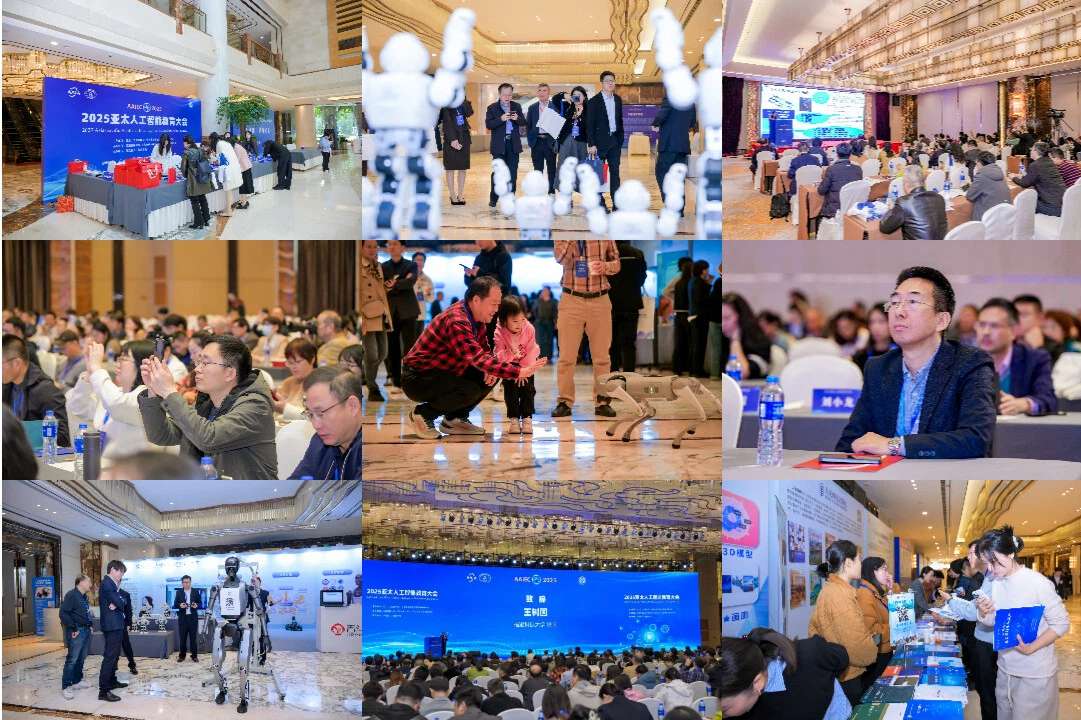 International Academy of Artificial Intelligence Sciences (AAIS)
International Academy of Artificial Intelligence Sciences (AAIS)
- Fellows
- AI Industries
- News
 International Academy of Artificial Intelligence Sciences (AAIS)
International Academy of Artificial Intelligence Sciences (AAIS)
2025 Asia-Pacific Artificial Intelligence Education Conference Successfully Concluded in Fuzhou

Global Experts Gather in Fuzhou to Discuss New AI in Education Ecosystem
FUZHOU, China – The “2025 Asia-Pacific Artificial Intelligence Education Conference,” jointly organized by the Asia-Pacific Artificial Intelligence Association, and co-hosted by Fuyao University of Science and Technology and Asia-Pacific Future (Fuzhou) Artificial Intelligence Technology Co., Ltd., was successfully held in Fuzhou from November 21st to 23rd.
Themed “Intelligence Enlightens the Future, Education Meets AI: Building a New Ecosystem for AI Education,” the conference featured leadership from seven Chinese and international academicians. It brought together top experts, scholars, university representatives, and industry leaders from the world. Discussions centered on “AI Empowering Educational Innovation,” focusing on the application of AI technologies in educational scenarios, curriculum system restructuring, teacher capacity upgrading, and industry-academia collaboration in talent cultivation, collectively mapping a new blueprint for AI in education development.
Academicians Lead Discussions on Core AI Education Transformation

The conference served as a high-level academic exchange platform. During the opening ceremony, industry leaders set the direction for AI-driven educational reform. Professor Jiang Zongli, Chairman of the National Computer Education Research Council for Higher Education, emphasized that AI is reshaping the education ecosystem, urging higher education computer science programs to proactively break traditional frameworks.
Professor Wang Shuguo, President of Fuyao University of Science and Technology, highlighted the mission of research-oriented universities in cultivating AI talent, proposing an educational approach combining “disciplinary integration + practical innovation.”
Professor, Lei Qujiang, General Secretary of the Asia-Pacific Artificial Intelligence Association, shared the vision and practices for promoting global AI education cooperation, calling for building an open and collaborative international education network.
The keynote reports constituted an “intellectual feast” with academicians deconstructing educational challenges in the AI era from multiple perspectives. Topics included cultivating top innovative talent, integrating core AI logic into teaching, balancing technical fundamentals with innovative thinking, and enhancing industry-academia collaboration to bridge the talent gap.
The conference covered a wide range of core topics, including the popularization of AI general education in universities, innovative applications of large language models in teaching, curriculum design optimization, cross-disciplinary integration, deepening industry-education collaboration, and expanding international cooperation, providing comprehensive and systematic guidance for the future development of AI in education.
At the closing ceremony, Professor Xu Zongben, Academician of the Chinese Academy of Sciences from Xi’an Jiaotong University, addressed “How should teachers teach and students learn in the AI era?”. He proposed a new positioning and paradigm for the synergy between AI and science education, emphasizing the teacher's role as a learning guide and resource integrator, and the need for students to develop self-directed learning and critical thinking skills.
Parallel Forums and Awards

The conference also featured two high-level roundtable forums focusing on the pain points of AI education, involving deans and young scholars who discussed resource integration, regional coordination, and building interdisciplinary exchange platforms.
Awards were presented to recognize outstanding contributions in the Asia-Pacific AI education field, including "Excellent University Award," "Excellent Textbook Award," "Excellent Teacher Award," and "2025 Asia-Pacific AI Education Leading Figures," which honored Academicians Zheng Zhiming, Xu Zongben, and Jiao Licheng.
An enterprise exhibition area facilitated practical industry-academia-research connections, showcasing the latest AI education platforms, textbooks, and training systems. A visit to Fuyao University of Science and Technology allowed participants to experience the characteristics of the new research-oriented university firsthand.

The conference established a high-end platform integrating academic exchange, industry, and teaching practice, forming a series of guiding industry consensuses. Participants affirmed that the insights and practical cases shared would propel AI in education to deeper levels and broader applications.
Following the conclusion, Professor He Yanxiang announced the closure of the conference. The organizer, Mr. Zhou Zaifeng, announced that the Asia-Pacific Artificial Intelligence Education Conference will continue in 2026, leveraging the platform to actively promote the widespread adoption and deep integration of AI education in the Asia-Pacific region.
The success of this conference has laid a solid foundation for China to become a hub for AI education innovation and is expected to inject lasting momentum into the collaborative development of AI education across the Asia-Pacific region and globally, facilitating high-quality transformation of education in the intelligent era.
